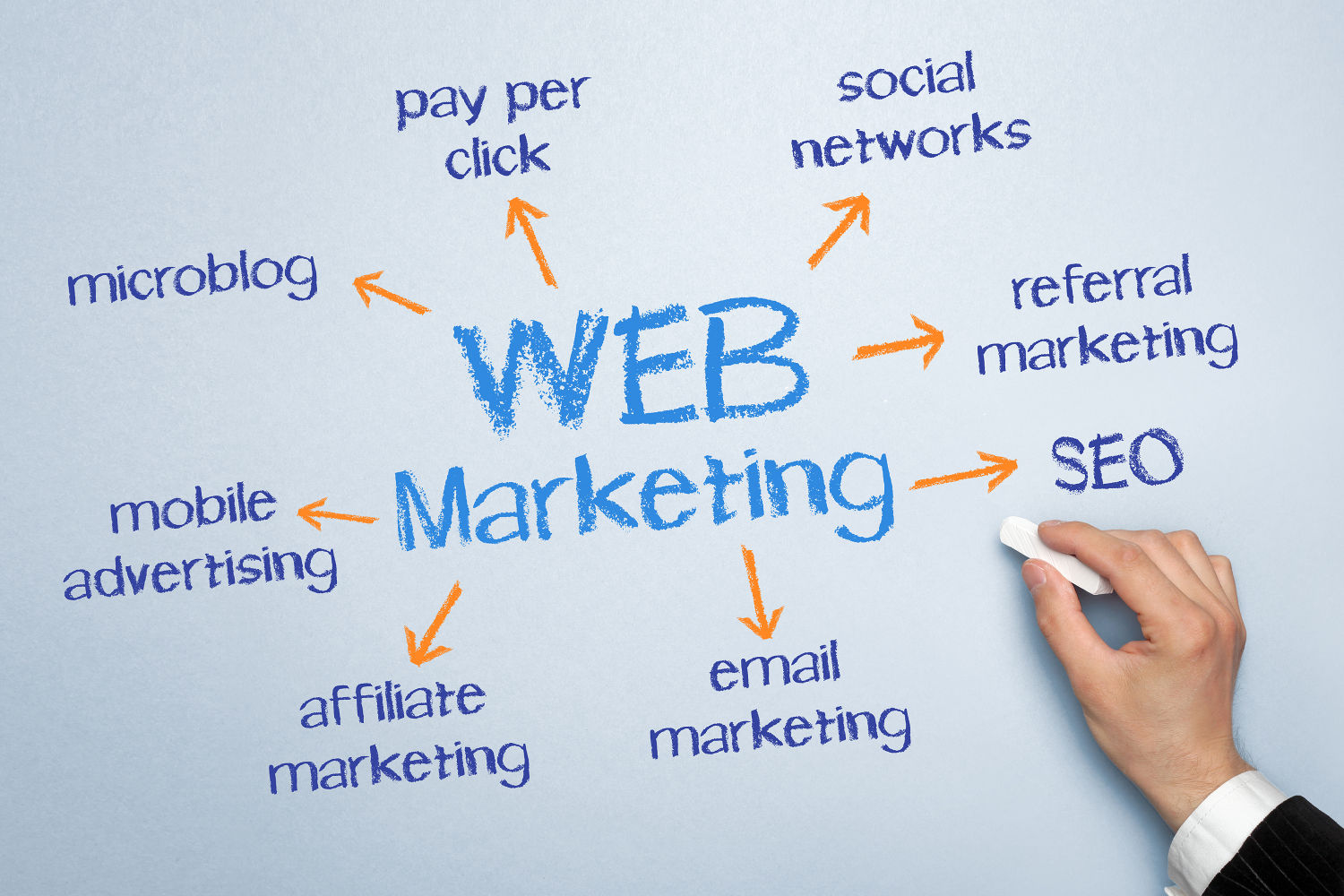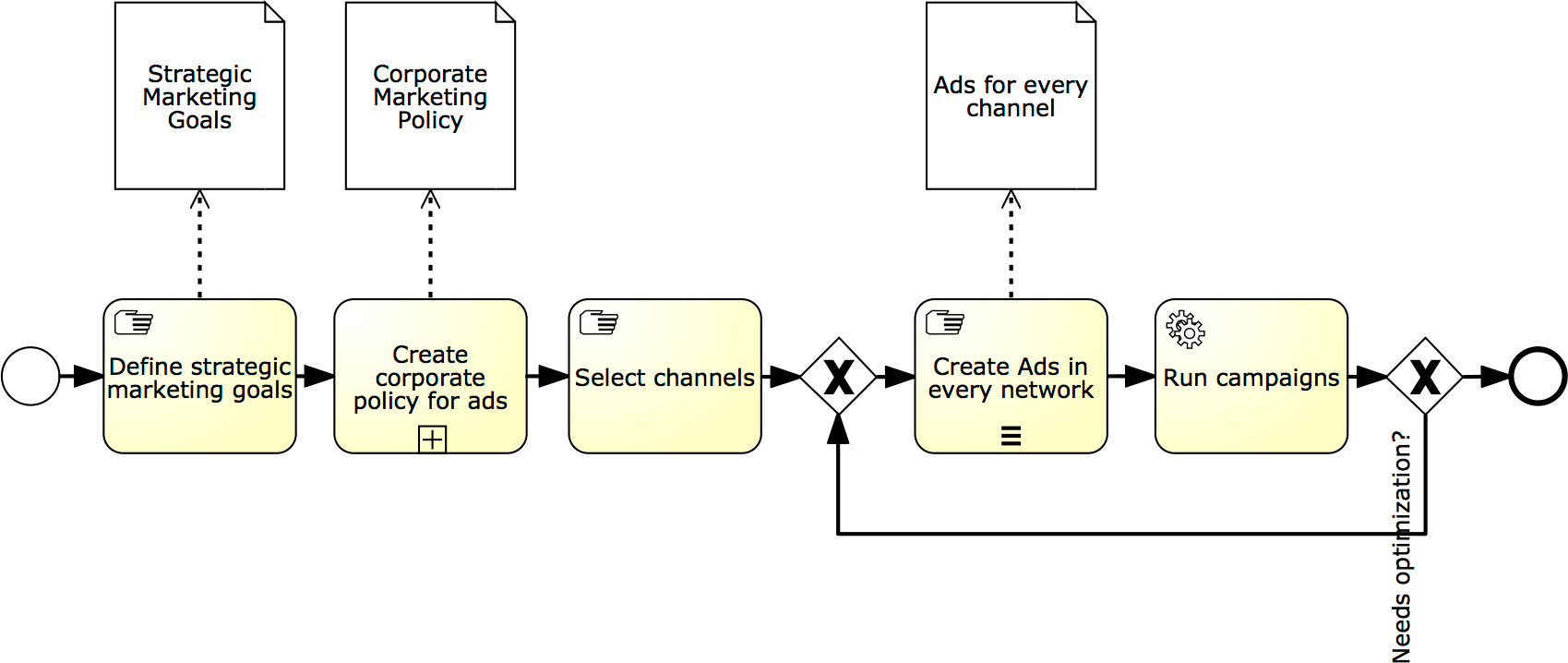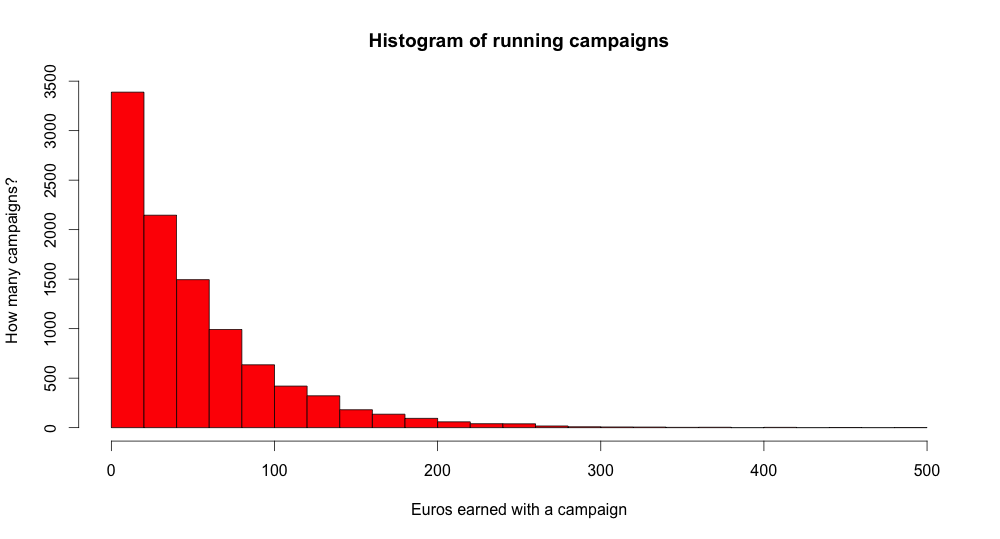
Online marketing compared to offline marketing is one of the newer process sets in economics. Everybody has to learn new things quickly and the possibilities are growing every week. Some old ways are not successful anymore and the strategy has to be adapted. This blog post will give a short overview about the process of how to adapt to these new challenges and how to be able to do professional circular controlling.

The image above shows the typical process like it is executed in every online business.
Define strategic marketing goals
The first step when doing activities on the internet is to have s.m.a.r.t. (specific, measurable, attainable, realistic, timely) goals. These goals are used for controlling and can be fed into machine learning systems like the incentergy platform for automatically optimizing decisions for reaching these goals.
Most of the time these goals are directly connected to KPIs. Well know KPI would be CPC (likely to be between 0,10 € – 5,00 €), CPO (likely to be between 20 € – 240 €), CPM etc.
The recommendation from incentergy is to base everything on profit. This means that not only revenue is interesting but also how much profit you make with certain revenue. Generally, you should concentrate on your cash cows and this should be included in your marketing goals. A typical goal list could look like this:
- Get 30.000 new visitors monthly
- Optimize landing pages to have a bounce rate of 60% in 3 months
- Pay in average 0,10 € per visitor in 2013
- Place advertising in 5 channels in 2013
- Have a conversion rate of 3% from October to December 2013
- Have 2.250 orders monthly
- The average profit in a basket should be 25% in 2013
As you have already observed in this goal list there are correlated variables. For example, conversion rate and order amount are correlated. In the end you are interested in everything that is correlated to profit. Everything that has no correlation with profit should be skipped.
Create corporate policy for ads
Every brand has their own brand personality and the marketing strategy has to match these criteria. There might be things which might be working very well but which do not represent the brand in a responsible way or even worse might be against the law. The corporate policy protects the brand image and makes it possible to have a consistent view across all the channels. A typical corporate policy might include the following:
- Every advertisement must contain the logo of the brand
- Only licensed, high quality images are allowed to be used
- No story in advertisement is used longer then 6 months
- The brand must not be mentioned in a pornographic or violent context
- The customer seeing the advertisement must always have the possibility to directly buy the product
- Advertisement will be split for 60% performance and 40% brand advertisement
Select channels
After a company has defined their goals and created a corporate advertisement policy. They have to decide which channels they should be using. Market research are mentioning currently the following channels in a descending effectiveness order for marketing:
- Newsletter to customers
- Search engine optimization
- Paid search
- Affiliate marketing
- Retargeting and behavioral remarketing
- Comparison sites
- Social networks
- Portals
- Display ads
- Spam
There are already new formats like mobile coupons and well known programs like loyalty cards. When selecting channels you have a typical explore-exploit dilemma and for some channels you have to make a huge up-front-investment to make them work like flagship stores.
Create ads in every network
When the creative and policy work is done the hard and busy part begins. You have to create a lot of inventory for advertisement. Online marketing is a long tail game meaning if you are running 1000 campaigns then around 950 will be useless and only 50 will create a lot of revenue for you. It is important to have as little work to create these campaigns as possible and then to find the 50 successful campaigns as cheaply and as fast as possible. Millions of dollars get burned because people think they know their customers but truth is, you are not your customer and you have to observe and learn before you do.
Run campaigns
Now you are ready to run these campaigns. You evenly split your budget and hit the start button. You will probably see that a long-tail hockey stick in the statistics. This means that most of your campaigns fail.
The image below shows that from 10.000 campaigns around 3300 only generate 0 € – 10 € in revenue.

It is quite common that even if you were sure that a certain campaign is the killer advertisement for your product it will not be as successful as you expected. All ad networks are collecting lots of statistics for you. They already give you tools to make batch updates to separate the sheep from the goats. Nevertheless they do not offer cross-channel optimization and budget allocation.
Another point is that you will observe seasonality. The biggest event in commerce is Christmas. A retailer is doing between 3 and 10 times more revenue during this time. If your revenue is only twice as high as in the other month you should definitely talk to us.
Optimization

While or after running all these campaigns you have to optimize. It is very likely that at the beginning you will lose money. So it is not about not losing money. It is about cheap learning. Everything comes with a cost, especially knowledge. It might be the case that you remember best if you lose a lot of money, but from a economical point of view you should learn as wisely as possible.
The incentergy platform is automating large parts of the online marketing process and you can concentrate on creating awesome and innovative ideas. We will take care to tell you as quickly and as cheap as possible which of these ideas are super awesome, i.e. profitable and which ideas are just awesome but burning money.
Leave a Reply